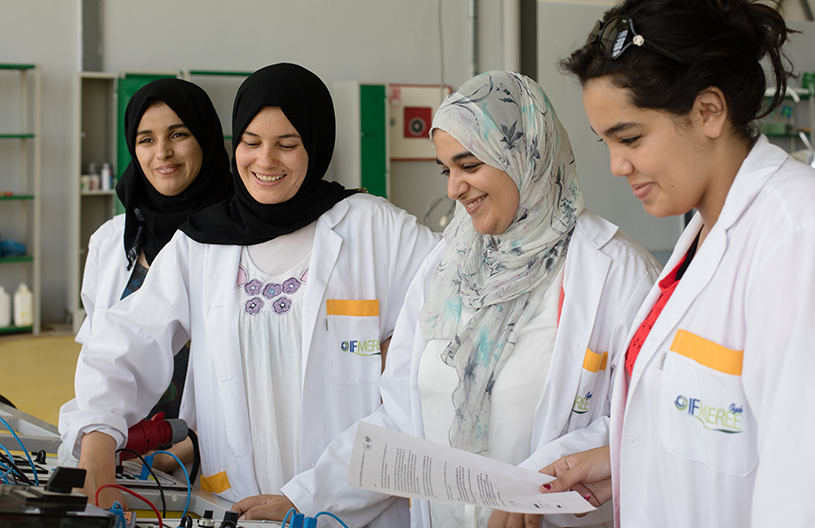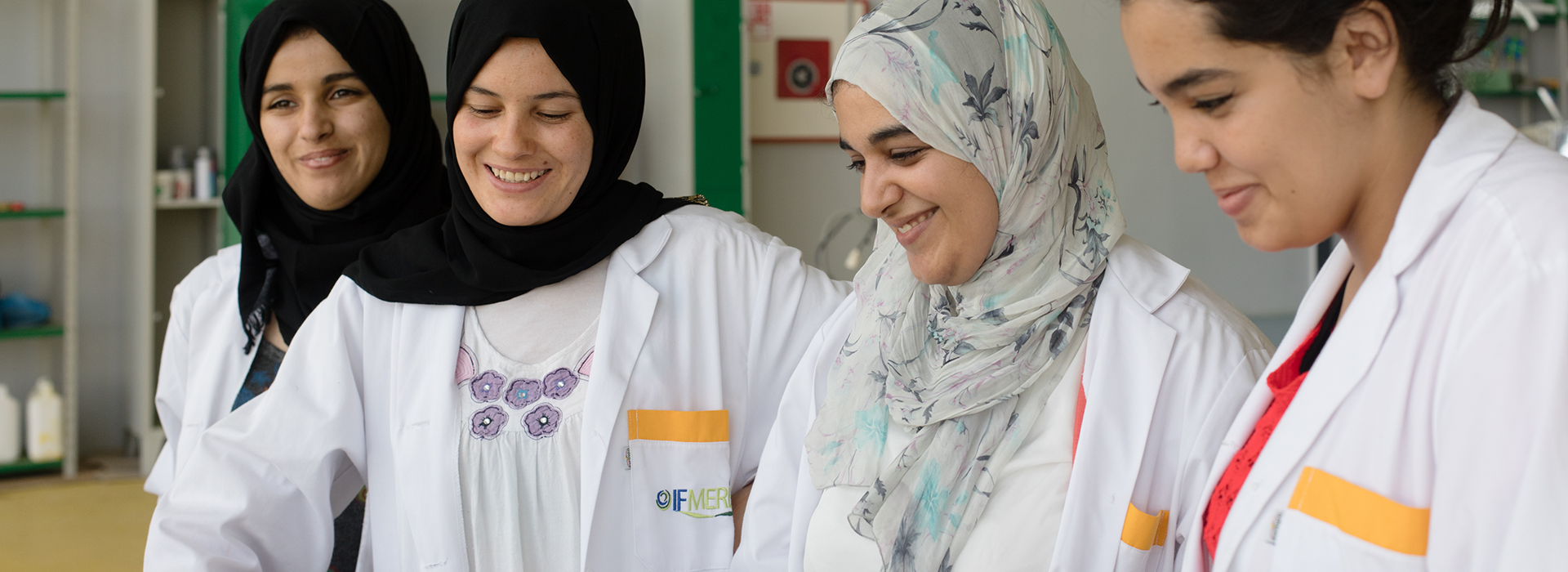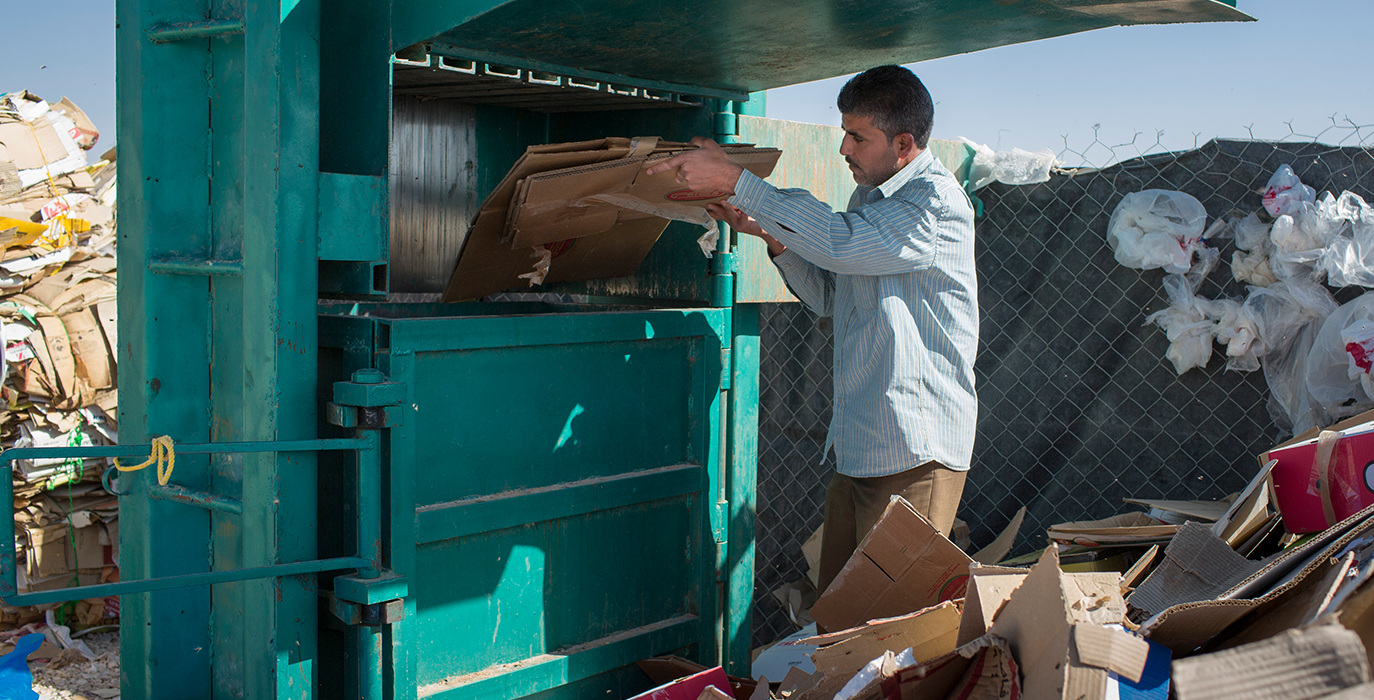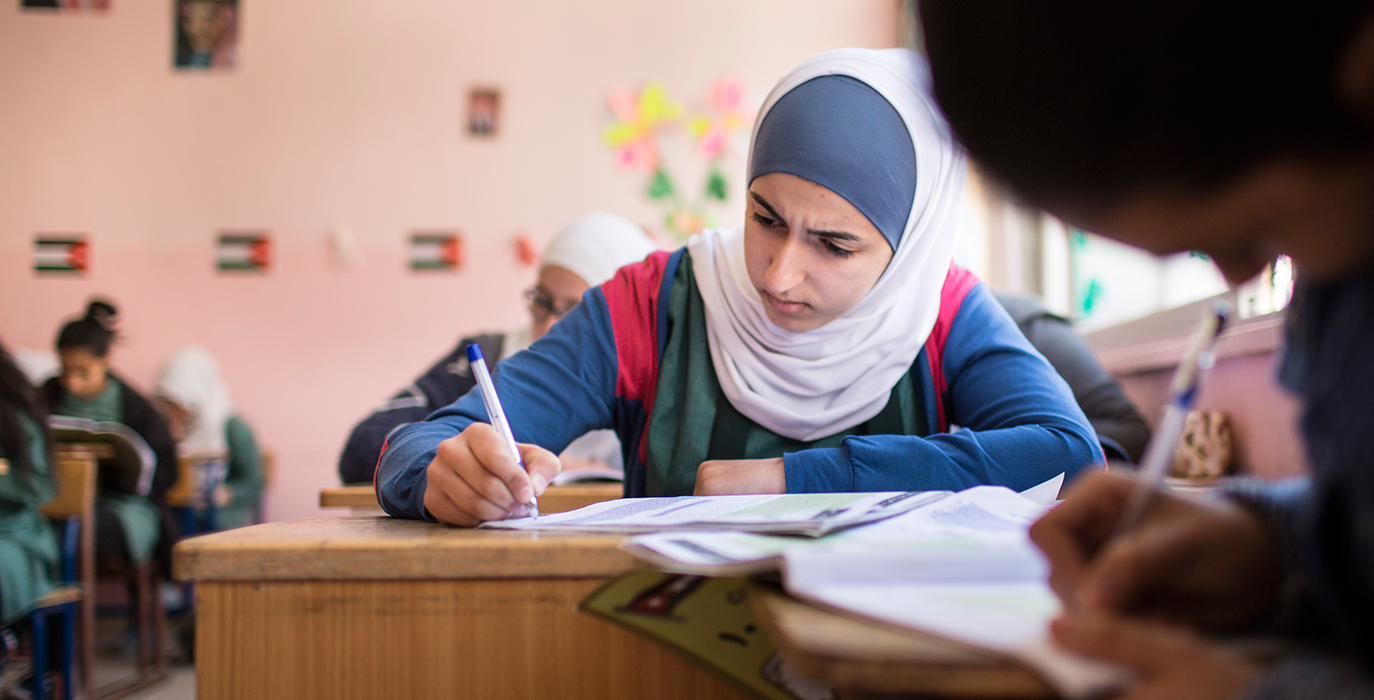

Security, reconstruction and peace: Prospects for refugees and migrants
Education, jobs, infrastructure: Supporting forcibly displaced people, migrants and host regions in a number of different ways.
People leave their home country for a variety of reasons. Many are in search of employment or training opportunities abroad. Others are forced to flee from war or violence or have to leave their home because they are being persecuted for religious or political reasons, or due to their sexual identity. The Deutsche Gesellschaft für Internationale Zusammenarbeit (GIZ) GmbH is working worldwide to help overcome the challenges associated with refugee movements and migration and to create long-term prospects for people.
On behalf of the German Federal Government, the European Union and other international clients, GIZ supports refugees, internally displaced persons and migrants around the globe in over 120 projects. These include short-term measures as well as long-term programmes that create structures and stability. More than three million refugees and internally displaced persons, as well as almost six million inhabitants of host communities, benefited from GIZ's support in 2020 alone.

Supporting refugees, strengthening host regions
Short-term employment measures enable refugees to earn an income for a certain period of time while acquiring further occupational skills. For example, they build sports grounds or improve infrastructure in collaboration with members of the host communities. Participants are paid immediately after completing the work. But where there are many people, waste disposal also needs to be organised. In the Jordanian refugee camp Zataari and the surrounding communities, for example, Syrian refugees collect waste, sort it and sell the recyclables to local businesses.
Most people are displaced in their own country as a result of conflict and violence. More than 1.4 million people are affected in Burkina Faso alone. On behalf of the German Federal Ministry for Economic Cooperation and Development (BMZ), GIZ is working with local partner institutions to improve the social conditions of internally displaced persons and host communities. This includes, for example, training teachers and school management staff with the aim of supporting the integration of internally displaced children.
However, GIZ supports not just refugees but the host regions and the populations living there. After all, much of the local infrastructure is clearly not designed to accommodate the many new inhabitants. GIZ helps to improve the healthcare or water supply situation, for example. In this way it helps the host countries create the basis for peaceful coexistence and humane living conditions. But its support also includes creating training opportunities.

Creating prospects in the home country
In order to improve living conditions in the countries of origin while combating the causes of involuntary migration, it is important to ensure reliable basic services and prospects – especially for young people. In Tunisia, for example, one third of all university graduates have no work. On behalf of BMZ, GIZ is offering training programmes there, for example in the fields of textile production, tourism and drywalling. Around 15,000 young people have completed basic or advanced training and participated in short-term training measures between 2018 and 2020. Some 7,500 young people have found employment – and with it better prospects for a future in their own country.
Lack of information on opportunities in the local labour market is another reason many people leave their home country in search of work and better living conditions. At the same time, returnees often find it difficult to reintegrate into the local labour market. On behalf of BMZ, GIZ has set up advisory centres for jobs, migration and reintegration in the Western Balkans, North and West Africa and in Pakistan and Iraq. Around 88,000 advisory consultations on training and job offers within the country have been conducted since mid-2019, as well as sessions about legal avenues of migration to Germany. But the centres are not just contact points for the local population. They also support migrants wishing to return from Germany to their home countries to start their career afresh.
Last update: September 2021